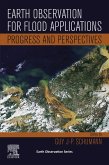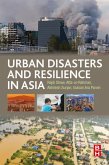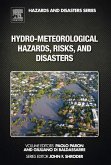This second volume of the Floods series of books explores existing policies and tools which mitigate the impact of flooding: the construction of protective structures, the reduction of vulnerability, land use planning, the improvement of crisis management, etc. The closing chapters focus on the question of adaptation through post-flood reconstruction, integrating disaster risk reduction measures, e.g. through resilient urbanism.
- Presents the state-of-the-art surrounding flood issues, from the description of the phenomena, to the management of risk (dikes, dams, reducing vulnerability and management of crisis)
- Written by specialists, but accessible to mainstream scientists
- Exposes knowledge, methodologies, scientific locks and the prospects of each discipline on the theme of floods
Dieser Download kann aus rechtlichen Gründen nur mit Rechnungsadresse in A, B, BG, CY, CZ, D, DK, EW, E, FIN, F, GR, HR, H, IRL, I, LT, L, LR, M, NL, PL, P, R, S, SLO, SK ausgeliefert werden.
Hinweis: Dieser Artikel kann nur an eine deutsche Lieferadresse ausgeliefert werden.









